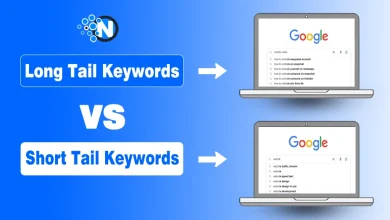Why Service Businesses Struggle With SEO Until They Fix Their Customer Data

Most people think SEO issues come from the outside. They blame it on the agency, the slow site, or the lack of backlinks. That stuff matters, sure.
But here’s the quiet truth about why service businesses struggle with SEO: they don’t understand who they’re serving because their customer data is a mess, and they struggle to get more sales.
Their bookings are scattered across email, text, and paper. Their idea of who’s buying and why is built on guesswork.
Before you tweak one more title tag, fix the messy data first.
In this blog post, I will discuss how service business SEO and customer data go hand in hand for driving desired outcomes.
What Bad Customer Data Looks Like Up Close
If you’ve worked in a service business, you’ve seen it. One lead says “John Smith,” another says “J. Smythe,” and both came from the same phone number. Half of your online bookings have blank fields. No one remembers if that person ever confirmed the job. You can’t run a proper SEO plan with that kind of chaos underneath.
Take a small taxi company. They thought their best keywords were “airport shuttle” and “corporate rides.” But when they finally looked at their job logs, most of the calls were for quick rides to the hospital from elderly clients. No one had checked the reason for the bookings until they started tagging them. They were trying to rank for the wrong stuff.
And that’s one of the core reasons why service businesses struggle with SEO. They optimize pages based on who they think they serve. But without data, it’s just a guess. Sometimes, they get lucky. Usually, they don’t.

Google can smell when a business is guessing. It rewards relevance. And you can’t be relevant if you don’t have your own records straight.
SEO Only Works if You Know Who You Serve
You can’t build a solid SEO strategy around assumptions. You need to know what your actual customers want, where they live, how they find you, and which services they ask for most. But you can’t see any of that unless your leads and jobs are logged properly.
Local SEO is especially sensitive. If your Google listing says you serve the entire county, but 80% of your business happens in just two neighborhoods, your content should reflect that. If your pages say you offer 24/7 support, but your logged calls drop off after 6 PM, you’re misleading both your customers and the algorithm.
Google can smell when a business is guessing. It rewards relevance. And you can’t be relevant if you don’t have your own records straight.
Moving Companies: A Case Study in Data Chaos
Let’s talk about movers. These folks often have more leads than they can handle, especially in summer. But because many rely on email chains or paper quotes, a lot of that demand slips through the cracks. They forget to follow up. They can’t see where people found them. Their SEO teams build content around high-traffic keywords like “cheap movers near me,” but they don’t know if those leads ever turn into booked jobs.
That’s why some of the savvier companies are turning to tools that are built for them. They’re looking for the best CRM for moving companies because they need to track the right stuff: quote requests, booked moves, missed calls, and even client feedback.

Once that’s in place, everything changes. They can finally see which pages drive calls. They know what services are most profitable. Their SEO plan stops being a guess and starts being data-driven.
This also brings us back to another angle of why service businesses struggle with SEO. Their systems can’t connect the dots. Even when the traffic rolls in, they don’t know what’s working, so they can’t double down.
Not Just Movers: It’s the Same for Home Repair and Salons
Take home repair. A plumbing service thinks it needs to rank for “emergency plumber” because that’s what everyone talks about. Once they start tracking job times and customer messages, they realize that only around half of online searches are for emergencies. Many people aren’t looking for last-minute work. They’re looking for someone reliable next Tuesday.
Same with salons. You’ll see a lot of fancy keywords aimed at trendy styles, but the people in their area just want a trim and color. They’re not booking online because the website only promotes niche services.
And that’s a bigger pattern behind why service businesses struggle with SEO. Without good records, they optimize for noise instead of signal. Around 90% of pages don’t receive organic traffic from Google because businesses chase trends instead of looking at what’s already working.
You Don’t Need Fancy Software to Start Cleaning Data
You don’t need a big tech budget to get new customers. What you need is a clear system that keeps track of who’s booking, how they found you, what service they wanted, and whether the job was completed. You can use a CRM, or you can use a shared spreadsheet. What matters is consistency.
Start by tagging each lead: where did they come from? What page did they land on? What did they ask for? It might feel slow at first, but within a month or two, you’ll start to spot patterns. You’ll see which services make up most of your revenue. You’ll notice which keywords line up with real bookings.
Most businesses don’t need more traffic. They need better visibility into what their current traffic is doing.
What Happens Once the Data Is Clean
Things start clicking into place. Your keywords make more sense once you start following customer feedback. The content speaks directly to the person who’s most likely to book. Your local pages focus on actual neighborhoods where you work. You stop writing for Google and start writing for the people who are already paying you.
That’s when Google takes notice. Because now, your business matches your online footprint. Relevance goes up. Click-through rates improve. People spend more time on the site because they find what they need faster.
It’s all because the stuff behind the scenes—the stuff you never thought about—got cleaned up.
SEO Isn’t a Magic Trick. It’s a Mirror.
Here’s the part no one likes to admit: if your SEO isn’t working, it’s not always the agency’s fault. It’s not always the content’s fault, either. Sometimes, it’s your systems and records. Your understanding of your own business. Why service businesses struggle with SEO has more to do with internal mess than external competition. Until you fix the customer data, everything else will keep sliding around. But once the data is solid, the strategy almost builds itself.




